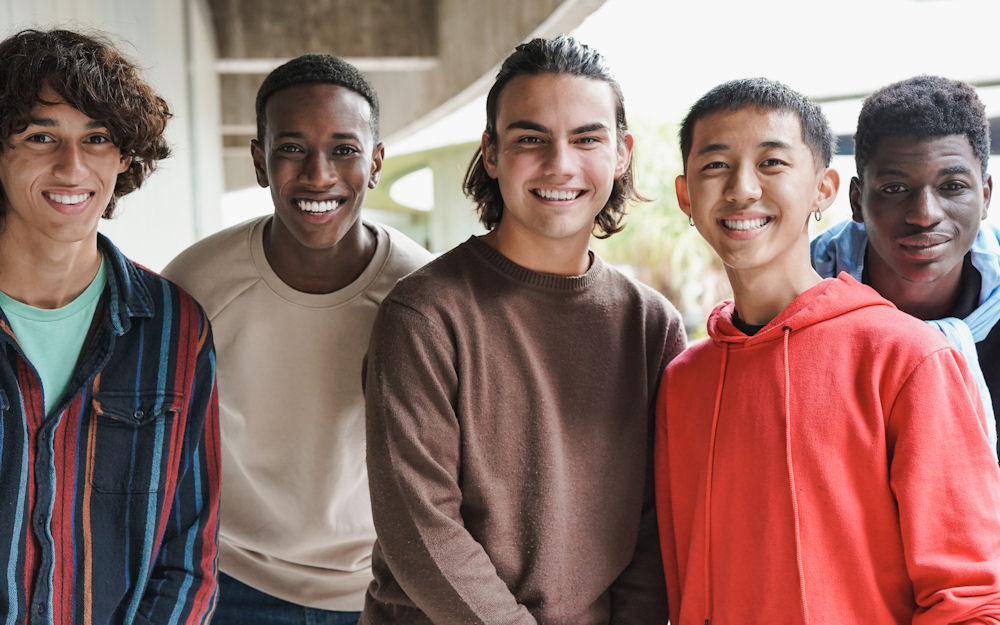While individual therapy is important for personalized treatment and support, group therapy is an ideal setting for teens to learn and practice coping and management strategies. If you are seeking help for young men ages 13 to 17, call us to learn more about our mental health treatment programs.

The therapist then guides the group through discussions on various topics related to mental health disorders, such as coping with triggers, managing emotions, and building healthy relationships. Each session may also include activities such as role-playing, group exercises, and open discussions.
Adolescents will gain valuable insights from their peers, learn practical strategies for managing their mental health symptoms, and develop a sense of community and mutual support. Basecamp Academy has programs designed for adolescents and teenagers, ages 13 to 17. We keep our residents in age-appropriate groups to deliver an individualized approach to treatment.
How Group Therapy Addresses Teen Mental Health Disorders
Group therapy allows teens to receive feedback and support from their peers, reinforcing positive behaviors and encouraging them to stay committed to their recovery journey. By hearing how their peers have successfully navigated similar situations, adolescents gain confidence in their ability to lead healthier lives.
Benefits of Group Therapy for Adolescent Mental Health
Adolescents often feel isolated and misunderstood due to their mental health challenges. Group counseling provides a supportive environment where they can connect with other young people who are experiencing similar challenges. This sense of camaraderie and understanding helps reduce feelings of isolation and promotes a sense of belonging.
In group therapy, adolescents have the opportunity to hear others share their experiences with mental health disorders and recovery. This can be incredibly validating and empowering, as teens realize they are not alone in their struggles. Sharing common experiences fosters empathy and compassion among group members.
Adolescents with mental health disorders may struggle with social skills and interpersonal relationships. Group counseling offers a safe space for teens to practice communication, active listening, and conflict-resolution skills with their peers. These interactions help improve their social competence and build healthier relationships outside of therapy.
Being part of a group provides accountability and motivation for adolescents to stay committed to their recovery goals. Knowing that others are supporting and rooting for their success can be a powerful motivator to actively engage in treatment.
Group members offer valuable feedback and perspectives on each other’s experiences and behaviors. Adolescents receive insights and suggestions from their peers, which can provide fresh perspectives and alternative solutions to their challenges. This collective wisdom fosters personal growth and encourages adolescents to consider new ways of thinking and behaving.
In a group setting, adolescents witness the progress and successes of their peers, which normalizes the recovery process. Seeing others overcome similar struggles instills hope and optimism, reinforcing the belief that recovery is possible. This normalization reduces stigma and encourages adolescents to embrace their journey toward wellness.


Group Therapy for Dual Diagnosis
Group counseling for adolescents with co-occurring disorders focuses on addressing the complex interplay between substance use and mental health issues. Therapists use evidence-based techniques to help adolescents develop insight into their behaviors, understand the connections between their substance use and mental health symptoms, and learn effective coping strategies to manage both conditions.
Adolescent group therapy provides young people with the support, skills, and motivation they need to address both their mental health and substance use issues effectively. By integrating group counseling into a comprehensive treatment approach, adolescents with co-occurring disorders can achieve lasting recovery and improved overall well-being.
One way group therapy aids in treating dual diagnosis is by providing peer support and validation. Adolescents with co-occurring disorders often feel isolated and misunderstood, but group counseling offers a space where they can connect with peers who are facing similar challenges. Sharing experiences, struggles, and successes with others who understand can reduce feelings of stigma and promote a sense of belonging and acceptance.
Group counseling allows adolescents to receive feedback from their peers, which can offer new insights and alternative viewpoints on their experiences. This collective wisdom helps adolescents develop a deeper understanding of their issues and provides additional support for navigating the complexities of dual diagnosis.
Group therapy also provides opportunities for skill-building and practice. Adolescents with co-occurring disorders may struggle with social skills, emotional regulation, and coping mechanisms. Group counseling sessions often include exercises and activities designed to improve these skills, such as role-playing, communication exercises, and mindfulness practices. By practicing these skills in a supportive group setting, adolescents can strengthen their coping abilities and enhance their overall functioning.
In group counseling, adolescents can develop a sense of accountability and motivation for their recovery. Knowing that they are part of a supportive community that is rooting for their success can increase adolescents’ commitment to their treatment goals and encourage them to actively participate in their recovery journey.
Group Therapy at Basecamp Academy
With a focus on holistic healing and personalized care, Basecamp Academy offers the support and resources needed to help young men address their mental health challenges. Contact us t learn more about how we can support your child on the path to recovery.

